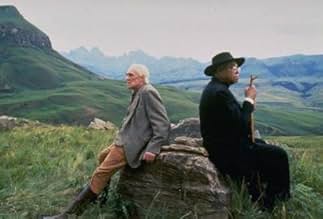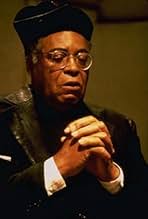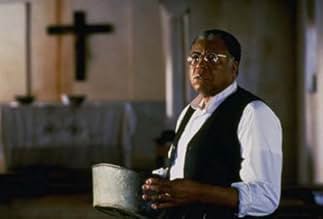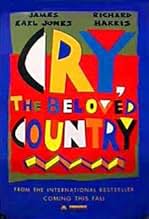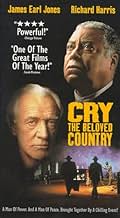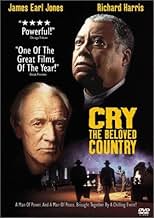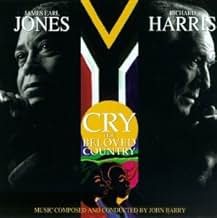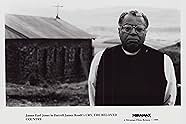Un predicatore Sudafricano si mette alla ricerca del suo figlio perduto, che ha commesso un grave peccato nella grande città di Johannesburg.Un predicatore Sudafricano si mette alla ricerca del suo figlio perduto, che ha commesso un grave peccato nella grande città di Johannesburg.Un predicatore Sudafricano si mette alla ricerca del suo figlio perduto, che ha commesso un grave peccato nella grande città di Johannesburg.
- Regia
- Sceneggiatura
- Star
- Premi
- 1 vittoria e 4 candidature totali
- Shebeen Queen
- (as Tembsie Times)
Recensioni in evidenza
I once performed in the Kurt Weill opera of the same name. I'm accustomed to having music propel me through the story, but I didn't miss it in this movie. One casting note - probably because of recent trends in NTC (non-traditional casting), most stage shows refer to the racial divide in the opera as "whites" and "coloreds," which, under apartheid, included all non-whites. Whether or not this was intentionally done by the librettist, it gives opera companies the freedom to hire Asian-Americans, African-Americans, and Hispanic-Americans (or Europeans) as the "colored" cast. In the movie, it was starkly white and black. Nevertheless, if you lack any other reason for seeing the movie, see it for the wonderful performances of Jones and Harris.
James Earl Jones once again renders a bravura performance as the African minister whose son has accidentally killed a white man. One can feel his grief and his burden as he tries to straighten the mess out. His son has confessed but others involved have denied knowledge of the offense.
Richard Harris plays an equally difficult role that of Mr Jarvis the white boy's father. One feels his grief and pain especially when he finds to his surprise that his son had disowned "baaskap," the over-lordship of the white race, something accepted as a given by most whites without a second thought just as the white housewife perfunctorily dismissed the black cleric in priestly garb as if he were a pesty door to door salesman.
Will mercy be extended to the preacher's son who accidentally pulled the trigger and cooperated with authorities or will he suffer the ultimate penalty while accomplices go free? Yet for all the misery the movie, surprisingly without excessive preaching, ends on a flicker of hope for the future.
This is a movie about black and white. A welknown theme in Hollywood, but I've never seen a movie which deals with this subject so excellent as this one.
I couldn't help crying at the end.
my rate: 10
Lo sapevi?
- QuizThe background instrumental music in the movie is the same as the theme song from the movie Zulu (1964).
- Citazioni
Rev Stephen Kumalo: My brother is greatly changed.
Theophilus Msimangu: But he has some truth on his side.
Rev Stephen Kumalo: "Truth"? But how can he have truth on his side and not God?
Theophilus Msimangu: At least he's got something. Look around. What do you see? Poverty, pain, suffering. Sometimes it is hard even for me to keep faith. Perhaps God is also on his side. Only your brother does not want to know it anymore.
- ConnessioniFeatured in 2nd Annual Screen Actors Guild Awards (1996)
I più visti
- How long is Cry, the Beloved Country?Powered by Alexa
Dettagli
Botteghino
- Lordo Stati Uniti e Canada
- 670.727 USD
- Lordo in tutto il mondo
- 670.727 USD
- Tempo di esecuzione1 ora 46 minuti
- Colore
- Mix di suoni
- Proporzioni
- 1.85 : 1
Contribuisci a questa pagina



